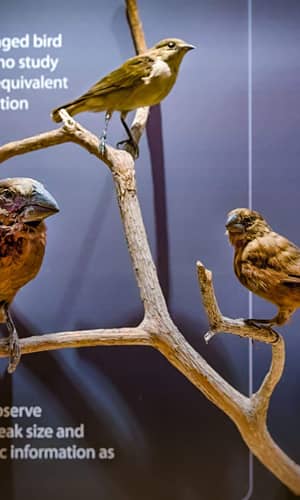Professional, peer-reviewed papers about natural selection, illustrating how it supports a recent creation within a biblical framework
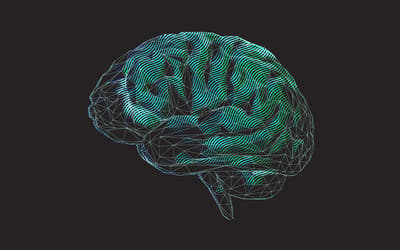
The Problem of Over-Design for Darwinism
Dr. Jerry Bergman • Feb. 23, 2022
The case for over-design is reviewed focusing on documented cases of normal persons that have exceptional abilities.

One of the Most Widely Used Quotes by D. M. S. Watson Vindicated
Dr. Jerry Bergman • Oct. 13, 2021
Critics have attempted to negate the effect of a common quote that evolution is accepted mainly because the only alternative, special creation, is unacceptable.

The History of Using Radiation to Speed Up Evolution
Dr. Jerry Bergman • March 24, 2021
The history of the mutation theory as the foundation of the source of new genetic information is reviewed.
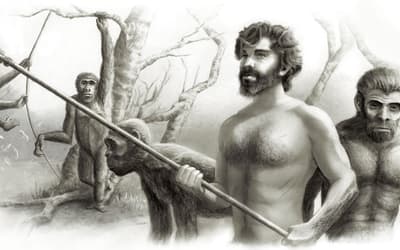
Evolution of the Vertebrate Kidney Baffles Evolutionists
Dr. Jerry Bergman • Feb. 24, 2021
An unbridgeable gap exists between the simple urinary system used in invertebrates and the far more complex kidney system used in all vertebrates.

Theistic Evolution: A Response to Wayne Grudem, Making the Same Errors He Opposes in Others
Dr. Terry Mortenson • Feb. 17, 2021
Grudem is making the same biblical and theological errors that theistic evolutionists make. To be biblically consistent, he must abandon his old-earth position.

Darwin’s Views of Women Had a Considerable Effect on Society
Dr. Jerry Bergman • April 29, 2020
This review has two goals, to document from Darwin’s writings that he believed women were inferior to men, and to document that his views greatly influenced modern academia and evolutionists.

Critical Analysis of Hugh Ross’ Progressive Day-Age Creationism Through the Framework of Young-Earth Creationism
David McGee • Feb. 13, 2019
The most important part of the debate between views on creationism is about the presuppositions of each group and their biblical hermeneutics.
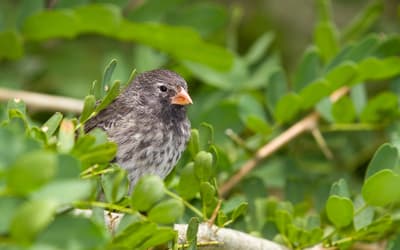
Responding to Lightner’s Comments on Natural Selection: Points of Agreement and Disagreement
Dr. Jason Lisle • Jan. 30, 2019
My paper was criticizing what Guliuzza has publicly written in which he denies the reality of natural selection: a claim that he has never publicly retracted.

Dubious Claims About Natural Selection
Dr. Jean Lightner • Jan. 30, 2019
This brief examination of Jason Lisle’s paper highlights that misunderstanding about natural selection is more prevalent among creationists than he suggests.
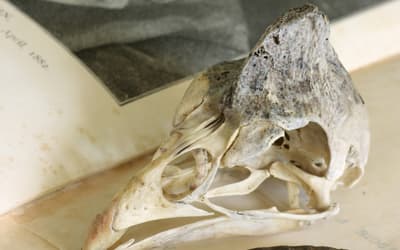
Refuting Dubious Claims Regarding Natural Selection
Dr. Jason Lisle • Dec. 5, 2018
Randy Guliuzza has made some controversial claims regarding the cause and nature of adaptation of organisms to their environment. We examine his claims.
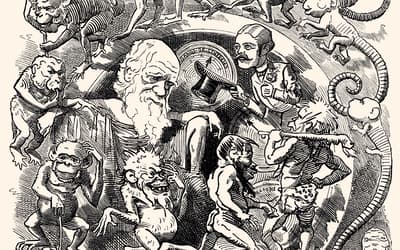
Response to “Still No Replacement of Darwin: A Reply to Nathaniel Jeanson’s Response to My Review of Replacing Darwin—The New Origin of Species”
Dr. Nathaniel T. Jeanson • Nov. 21, 2018
Frello’s recent critique is helpful progress in our discussion, and it argues for the strength of the science in Replacing Darwin.

Still No Replacement of Darwin—A Reply to Nathanial Jeanson’s Response to my Review of Replacing Darwin—The New Origin of Species
Stefan Frello • Nov. 21, 2018
I used to think that when creationists talk about creation and evolution as a clash between worldviews, they were wrong. Jeanson has helped me change my mind.
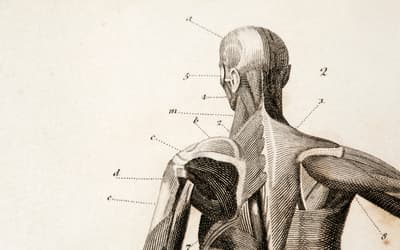
Biblical Integration in Anatomy and Physiology: A Design Approach
Elizabeth Sled • June 20, 2018
We have been created fearfully and wonderfully by our Creator God, and the human body showcases God’s intricate design.
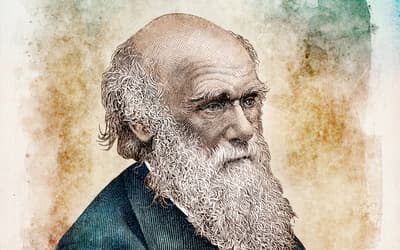
Response to “No Replacement of Darwin: A Review of Replacing Darwin—The New Origin of Species”
Dr. Nathaniel T. Jeanson • April 25, 2018
Ironically, Frello has actually done me a great favor; his review ends up bolstering my original claims.

No Replacement of Darwin
Stefan Frello • April 25, 2018
Jeanson takes on a formidable task: To show that the theory of evolution is wrong, and to replace it with biblical creation. To make it short: Jeanson fails.
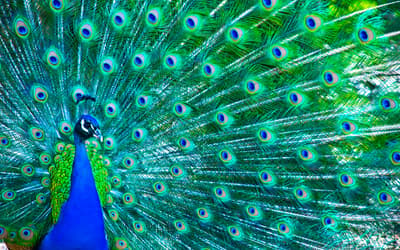
The Origin of Beauty: Contrasting the Handicap Hypothesis and Design Theory
David Woetzel • Dec. 13, 2017
Why should there be such “gratuitous beauty”? The plethora of extravagant biological characteristics prominently call out for an explanation.

Big Gaps and Short Bridges: A Model for Solving the Discontinuity Problem
Change Laura Tan • July 6, 2016
This paper argues that the issue with the origin of life and the origin of biodiversity is not an issue of time, though deep time is problematical.
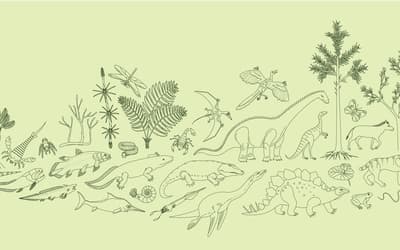
On the Origin of Eukaryotic Species’ Genotypic and Phenotypic Diversity
Dr. Nathaniel T. Jeanson , et. al. • April 20, 2016
This study shows that created heterozygosity, together with natural processes that are observable, is sufficient to account for species’ diversity.
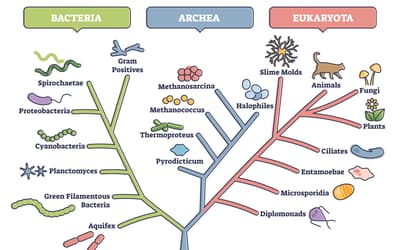
Using Taxonomically Restricted Essential Genes to Determine Whether Two Organisms Can Belong to the Same Family Tree
Change Laura Tan • Nov. 4, 2015
How are all life forms connected? Are they linked by one giant family tree, a web, or a forest of family trees?

Challenging the BioLogos Claim that a Vitellogenin (Egg-Laying) Pseudogene Exists in the Human Genome
Jeffrey P. Tomkins • Oct. 21, 2015
Interestingly, BioLogos is probably the only evolutionary group that puts such a high level of focus on this hypothesis as key evidence for evolution.
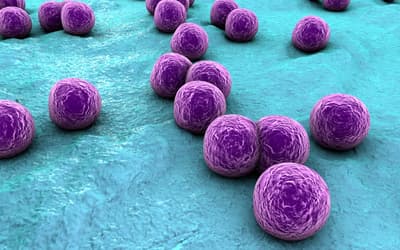
The Genesis and Emergence of Community-Associated Methicillin-Resistant Staphylococcus aureus (CA-MRSA): An Example of Evolution in Action?
Dr. Alan L. Gillen , et. al. • Oct. 14, 2015
We have seen a changing profile from HA-MRSA to CA-MRSA. This is potentially dangerous because the new strains are more virulent and aggressive.

Documented Anomaly in Recent Versions of the BLASTN Algorithm and a Complete Reanalysis of Chimpanzee and Human Genome-Wide DNA Similarity Using Nucmer and LASTZ
Jeffrey P. Tomkins • Oct. 7, 2015
Past evolutionary research in comparative DNA analysis between chimps and humans has employed a great deal of preferential and selective data analysis.

Mutations in the nef Gene make HIV-1 More Virulent
Yingguang Liu • June 17, 2015
Mutational degeneration of the nef gene manifests as increased pathogenicity of HIV-1.

Cyclic Selection in HIV–1 Tropism: Microevolution That Is Going Nowhere
Yingguang Liu • April 29, 2015
The molecular interaction of HIV-1 is merely cyclic fine-tuning of an existing function and illustrates the broken relationship between the virus and the host.
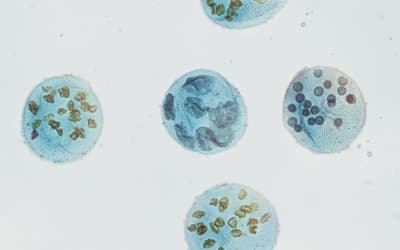
Information Processing Differences Between Bacteria and Eukarya—Implications for the Myth of Eukaryogenesis
Change Laura Tan , et. al. • March 25, 2015
Based on differences in gene sets and molecular machines between bacteria and eukarya, we continue to demonstrate that unbridgeable evolutionary chasms exist.

Information Processing Differences Between Archaea and Eukarya—Implications for Homologs and the Myth of Eukaryogenesis
Change Laura Tan , et. al. • March 18, 2015
In the grand evolutionary paradigm, the origin of the eukaryotic cell represents one of the great mysteries and key hypothetical transitions of life.
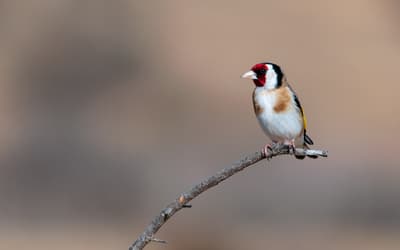
Natural Selection: Assessing the Role It Plays in our World
Dr. Jean Lightner • March 4, 2015
Natural selection is controversial among many scientists, both in evolutionary and creationary circles.
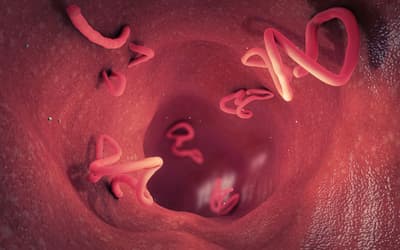
Parasitology and Creation
Dr. Matthew E. Ingle • Feb. 4, 2015
As we learn more about parasites, which don’t seem to be “good” design, we will understand better how the parasitic lifestyle resulted from the Fall.
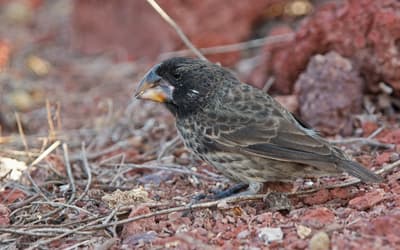
Reply to “A Response to ‘Does Natural Selection Exist?’”
Dr. Nathaniel T. Jeanson • Nov. 5, 2014
In this three-part ~35,000-word response, Guliuzza (2014a, b, c) fails to clearly define his terms and/or use them consistently.
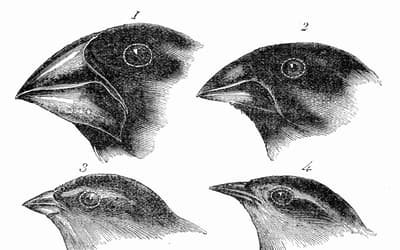
A Response to “Does Natural Selection Exist?”: Creatures’ Adaptation Explained by the Design-based, Organism-driven Approach: Part 3
Randy J. Guliuzza • Nov. 5, 2014
This third installment is a continuation of my response to a recent critical paper (Jeanson 2013).

A Response to “Does Natural Selection Exist?”: Creatures’ Adaptation Explained by the Design-based, Organism-Driven Approach: Part 1
Randy J. Guliuzza • Oct. 29, 2014
This paper responds to a 2013 Jeanson paper critical of a series of Acts & Facts articles published by the Institute for Creation Research (ICR).

A Response to “Does Natural Selection Exist?”: Creatures’ Adaptation Explained by the Design-based, Organism-driven Approach: Part 2
Randy J. Guliuzza • Oct. 29, 2014
This second installment is a continuation of my response to a recent critical paper (Jeanson 2013) on a series of Acts & Facts articles.
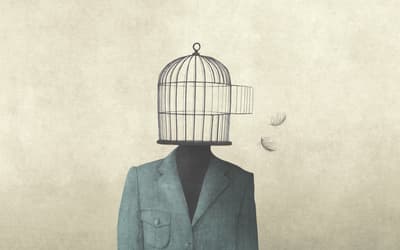
Scientific Evidence Indicates Natural Selection and Brain-Based Education Conflict with Human Nature
Callie Joubert • Oct. 15, 2014
Children have an innate, natural, intuitive, and unlearned tendency to reason about the world as biblical creationists do.

The Human Beta-Globin Pseudogene Is Non-Variable and Functional
Jeffrey P. Tomkins • Aug. 21, 2013
The HBBP1 gene appears to be a highly functional and cleverly integrated feature of the human genome that is intolerant of mutation.

Does Natural Selection Exist?
Dr. Nathaniel T. Jeanson • Aug. 7, 2013
How did the modern diversity of life arise from the created kinds of Genesis 1 and from the kinds taken on board the Ark? Did natural selection play a role?
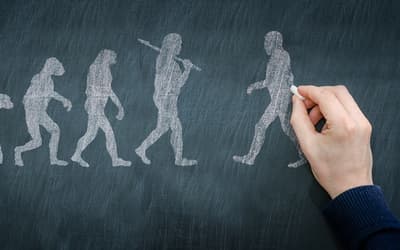
Evolutionary Psychology: Why It Fails as a Science and Is Dangerous
Callie Joubert • Dec. 19, 2012
Christians and the public at large cannot afford to accept what they are being told about themselves from the perspective of evolutionary psychology.
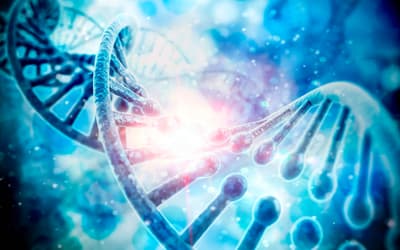
An Evaluation of the Myth That “Nothing in Biology Makes Sense Except in the Light of Evolution”
Dr. Jerry Bergman • Feb. 8, 2012
I reviewed both the textbooks used for life science classes at the college where I teach and those that I used in my past university course work.

Adam, Free Choice, and the Cause of Sin: A Creationist Response to a Christian Evolutionist
Callie Joubert • Oct. 26, 2011
This paper will show that Christian professor Daniel Brannan’s arguments are based on faulty premises regarding Adam’s constitutional nature, the nature of Adam’s perfection and Adam’s free choice.

Emergentism and the Rejection of Spirit Entities: A Response to Christian Physicalists
Callie Joubert • Aug. 10, 2011
Emergentism defies commonsense; there is also no scientific evidence that something material could produce an entity of a kind radically different from itself.
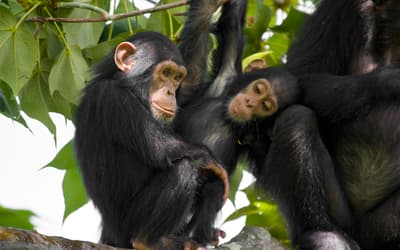
How Genomes are Sequenced and Why it Matters: Implications for Studies in Comparative Genomics of Humans and Chimpanzees
Jeffrey P. Tomkins • June 22, 2011
When evaluating comparisons between genomes using DNA sequence, it is important to understand the nature of how that sequence was obtained and bioinformatically manipulated before drawing conclusions.
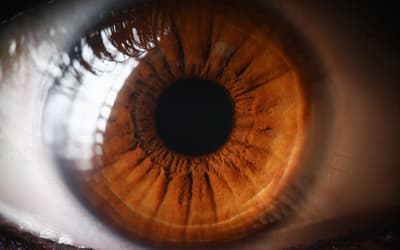
The Human Retina Shows Evidence of Good Design
Dr. Jerry Bergman • June 8, 2011
Darwinists try to disprove the argument from design by providing examples of what they claim are poor design.
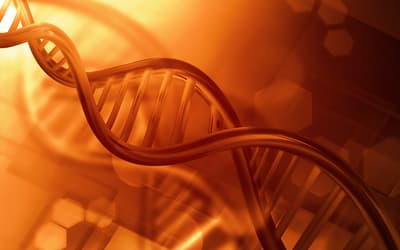
Toward an Accurate Model of Variation in DNA
Mitchel Soltys • March 2, 2011
The Bible’s description of created kinds implies an information model which uses variables. The findings in this paper show that a model which uses variables forms a basis for understanding biology.
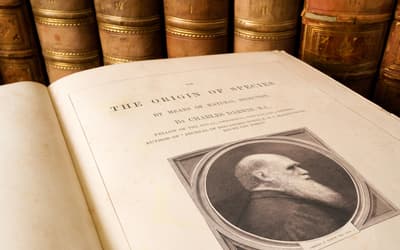
Why Orthodox Darwinism Demands Atheism
Dr. Jerry Bergman • July 28, 2010
A conflict exists between modern neo-Darwinism and orthodox biblical Christianity.

Inherit the Wind
Dr. Jerry Bergman • March 31, 2010
Although the play was widely believed to be an accurate synopsis of the historical trial, often called the Trial of the Century, it grossly distorted the actual events of history.

Fraud and Forgery in Paleoanthropology
Dr. Jerry Bergman • Dec. 23, 2009
A review of the history of paleoanthropology leads to the conclusion that the discipline is far less objective than that for physics, chemistry, or even biology.
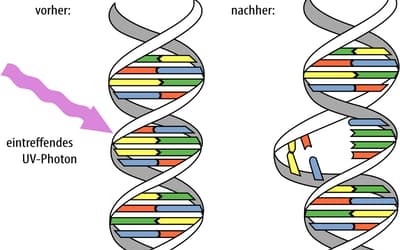
Towards a Creationary Classification of Mutations
Jonathan Bartlett • Dec. 2, 2009
Mutations are normally classified according to their proximal effect on an organism’s fitness, whether beneficial, deleterious, or neutral.

A Review of Mitoribosome Structure and Function Does not Support the Serial Endosymbiotic Theory
Daniel Criswell • Oct. 7, 2009
It is apparent from the knowledge gained about mitochondria ribosome structure and function since the proposal of the Serial Endosymbiosis Theory that prokaryotes are not the ancestors of eukaryotes.
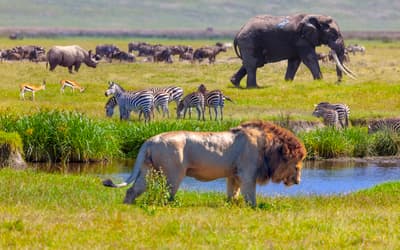
Genetics of Coat Color II
Dr. Jean Lightner • June 10, 2009
Recognizing the population bottleneck which occurred in land animals at the time of the Flood, it is clear that genetic variation was once more limited than it is today.

Toward An Understanding of Arbuscular Mycorrhizal Fungi
Tom Hennigan • Feb. 18, 2009
As we seek to discover the intent of the Designer, we can enhance our stewardship of the land by using this symbiosis to re-establish polluted and disturbed landscapes and grow sustainable crops.

There Is No Darwin Conspiracy
Todd Charles Wood • Jan. 28, 2009
Some contend that Charles Darwin plagiarized his theory of evolution. Whether you agree with the man or not, however, the evidence suggests the idea is his.

Genetics of Coat Color I
Dr. Jean Lightner • Oct. 8, 2008
Given the number of alleles within baramins, much of the diversity at this locus must have developed since the genetic bottleneck at the Flood where only a single breeding pair was preserved.
Natural Selection on Answers Research Journal
Evolutionary ideas assert that natural selection is one of the major driving forces for molecules-to-man evolution. Natural selection, or “survival of the fittest,” is the observable process by which organisms with specific characteristics survive and reproduce better in a given environment. Over billions of years, evolutionists propose that this mechanism adds novel genetic information (generated by random mutations), resulting in new structures and functions that allow one kind of organism to evolve into a different kind of organism.
The aim of these research papers in Answers Research Journal (ARJ) is to show what natural selection can achieve in the present through examples (e.g., Darwin’s finches) and how the process supports a recent creation within a biblical framework. These professional, peer-reviewed papers address issues related to natural selection and how that relates to other disciplines. Our journal considers natural selection in light of creation, evolution, biblical scholarship, genetics, baraminology, the fall, and more.
Charles Darwin popularized natural selection as a process by which evolution could be achieved. However, observable evidence clearly shows that natural selection cannot do what evolution requires. Natural selection results in a loss or reshuffling of genetic information, not the gain of information evolution requires. This process merely selects from what is already present and does not create anything new. Natural selection can result in variation and speciation within a biblical kind but not what is necessary for molecules-to-man evolution.
